The "pre-crime" agenda is unleashed in full force...
You are using an out of date browser. It may not display this or other websites correctly.
You should upgrade or use an alternative browser.
You should upgrade or use an alternative browser.
Canadian Orwellian world: Lockdowns, vaccines passports and more
- Thread starter Debra
- Start date
FRV
Jedi
There is a facebook group I have recently found called the "Nationwide Protest Against the Carbon Tax" that has just over 100, 000 people in a matter of a couple weeks because Carbon Tax is going up again April 1st. Some people are saying fuel up March 31 then boycott buying fuel for the following week while others are setting up protests in multiple provinces and in some case multiple cities within a province. I'm curious if anyone else has heard about this movement and has any thoughts on it? It could be ways to make it more impactful or things to watch out/possible dangerous
Lots of people have been wondering about Chrystia Freeland and her tweaked-out squirming on camera. According to John Helmer, it's not drugs. She stops fidgeting as soon as she starts speaking. He's collected some anonymous diagnoses that say she has Histrionic Personality Disorder (HPD).
Helmer also writes that she's very desperate to become Minster Prime, maybe even moreso with Project Ukraine failing hard. Helmer gives some stats about her levels of popularity. She's almost less popular than Trudeau. An amazing accomplishment. I think she may hate Trudeau, and see him as an obstacle to her rightful place in power.
The title of the piece is hilarious - her HPD is incurable... unless she becomes leader!
All in all, a very interesting read.

Helmer also writes that she's very desperate to become Minster Prime, maybe even moreso with Project Ukraine failing hard. Helmer gives some stats about her levels of popularity. She's almost less popular than Trudeau. An amazing accomplishment. I think she may hate Trudeau, and see him as an obstacle to her rightful place in power.
The title of the piece is hilarious - her HPD is incurable... unless she becomes leader!
All in all, a very interesting read.

CANADA’S DEPUTY PRIME MINISTER CHRYSTIA FREELAND DIAGNOSED WITH PROGRESSIVE HPD – INCURABLE UNLESS SHE TAKES THE PRIME MINISTRY FROM JUSTIN TRUDEAU
by John Helmer, Moscow @bears_with In two public performances of less than two minutes apiece, Chrystia Freeland (lead images),
johnhelmer.net
Jtucker
Jedi Master
Although Freeland is running ahead of Trudeau among Liberal Party voters, the polls reveal she is trailing voter sentiment for anyone-but and the preference against all. This hostility to Freeland is particularly visible among Canadian men, and in the Canadian prairie states where her Ukrainian grandfather Chomiak migrated after release from a US Army prison camp, and where Freeland grew up.Lots of people have been wondering about Chrystia Freeland and her tweaked-out squirming on camera. According to John Helmer, it's not drugs. She stops fidgeting as soon as she starts speaking. He's collected some anonymous diagnoses that say she has Histrionic Personality Disorder (HPD).
Helmer also writes that she's very desperate to become Minster Prime, maybe even moreso with Project Ukraine failing hard. Helmer gives some stats about her levels of popularity. She's almost less popular than Trudeau. An amazing accomplishment. I think she may hate Trudeau, and see him as an obstacle to her rightful place in power.
The title of the piece is hilarious - her HPD is incurable... unless she becomes leader!
All in all, a very interesting read.

CANADA’S DEPUTY PRIME MINISTER CHRYSTIA FREELAND DIAGNOSED WITH PROGRESSIVE HPD – INCURABLE UNLESS SHE TAKES THE PRIME MINISTRY FROM JUSTIN TRUDEAU
by John Helmer, Moscow @bears_with In two public performances of less than two minutes apiece, Chrystia Freeland (lead images),johnhelmer.net
I can personally attest to the above. Every prairie male (and female) I know equally despise Freeland as much as Turdeau.
I can personally attest to the above. Every prairie male (and female) I know equally despise Freeland as much as Turdeau.
Know many who feel the same, and If either sex knew the true depth and breadth of her scheming (at the behest and handling of others), she would not be accorded one ounce of sympathy.
Read the article, and one might say that Helmer held back just a wee bit
 (one can enter Freeland on his search bar for much more, or at SOTT and elsewhere).
(one can enter Freeland on his search bar for much more, or at SOTT and elsewhere).Her rise to power was nothing short of meteoric, displacing longtime capable ministers. Her signature was being a Cecil Rhodes scholar, as she tirelessly worked for the Western Uki cause (an asset of one or another intelligence communities is a distinct hypothesis).
So, from her window overlooking Maidan square in 2014 after years of meddling, she easily slipped into the new tailor made Deputy PM position; the military was sent to train Azov (once upon a time noticed in MSN with big question marks that suddenly went away); billions later in taxpayer funding and arming of same; unlimited legislation for immediate migration to Canada from the mass exodus from Ukraine (signed off by many Ukrainian expats and sympathizers in Parliament). Then there was all that nonsense with Juan Guaidó that she helped spearhead, and her buddy Soros, and chinwags with Andriy Parubiy of the nationalist Svoboda Party. Then came her heights of power during covid to cancel anyone from her pulpit {*see below), and on and on. More lately, Chrystia was seen beaming up and salivating at one of the old Waffen SS guards associated at the times of her grandfather. Love at first sight.
*Q: (L) Well, why is Canada doing this?
A: Experiment on "tough" people.
Q: (L) So they're trying to see how far they can push people who are reputed to be tough and not pushable.
They say "A picture is worth a thousand words."
All eyes to the Waffen SS Old Guard
Small sampling:

Canadian Foreign Minister Chrystia Freeland: Ukraine and the Toronto Globe & Mail exposé - Soros is a "close friend"
A Toronto newspaper has revealed that Canada's leading Russia hater, Foreign Minister Chrystia Freeland, had a deal with George Soros (lead image) to write his biography after she had lost her journalist jobs at the Financial Times and Reuters,...
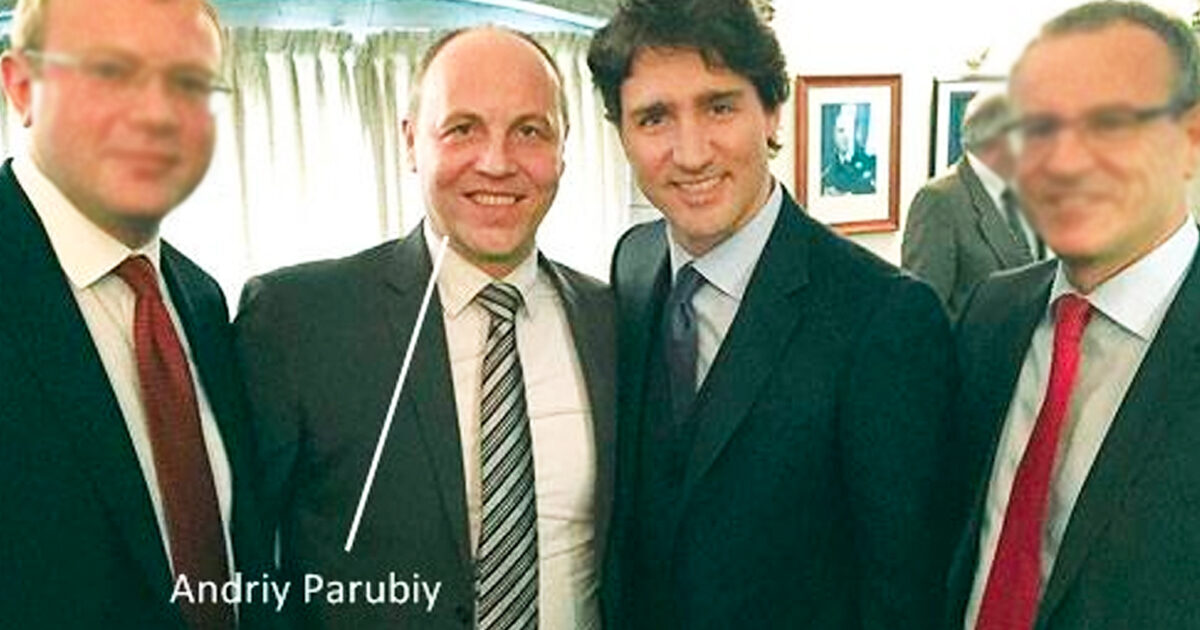
Trudeau & Freeland held 'fruitful' meetings with Ukrainian neo-nazi Andriy Parubiy
A report from True North yesterday reveals that Canadian Prime Minister Justin Trudeau and Minister of Finance Chrystia Freeland met with a Ukrainian neo-Nazi several times. Andriy Parubiy is a member of the nationalist Svoboda Party and the...
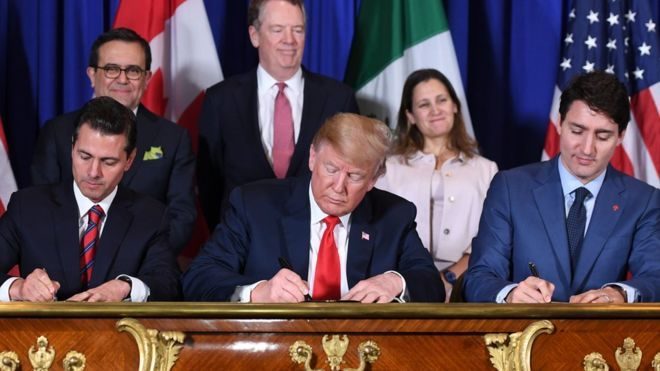
US State Dept boasted in 2017 that the appointment of FM Chrystia Freeland meant Canada had adopted an 'America First foreign policy'
The US embassy in Ottawa boasted in a March 2017 memo, "Canada Adopts 'America First' Foreign Policy," just after PM Trudeau appointed hard-line hawk Chrystia Freeland as foreign minister. The US State Department boasted in a declassified memo in...

Truth & Irony: Consortium News vs Chrystia Freeland and her Nazi grandfather's scheme for Ukraine
The truth is that Consortium News trusted a Russian entity named the Strategic Culture Foundation and a Ukrainian reporter called Arina Tsukanova for a story published on February 27, 2017, about Chrystia Freeland's grandfather Mikhail Chomiak, a...
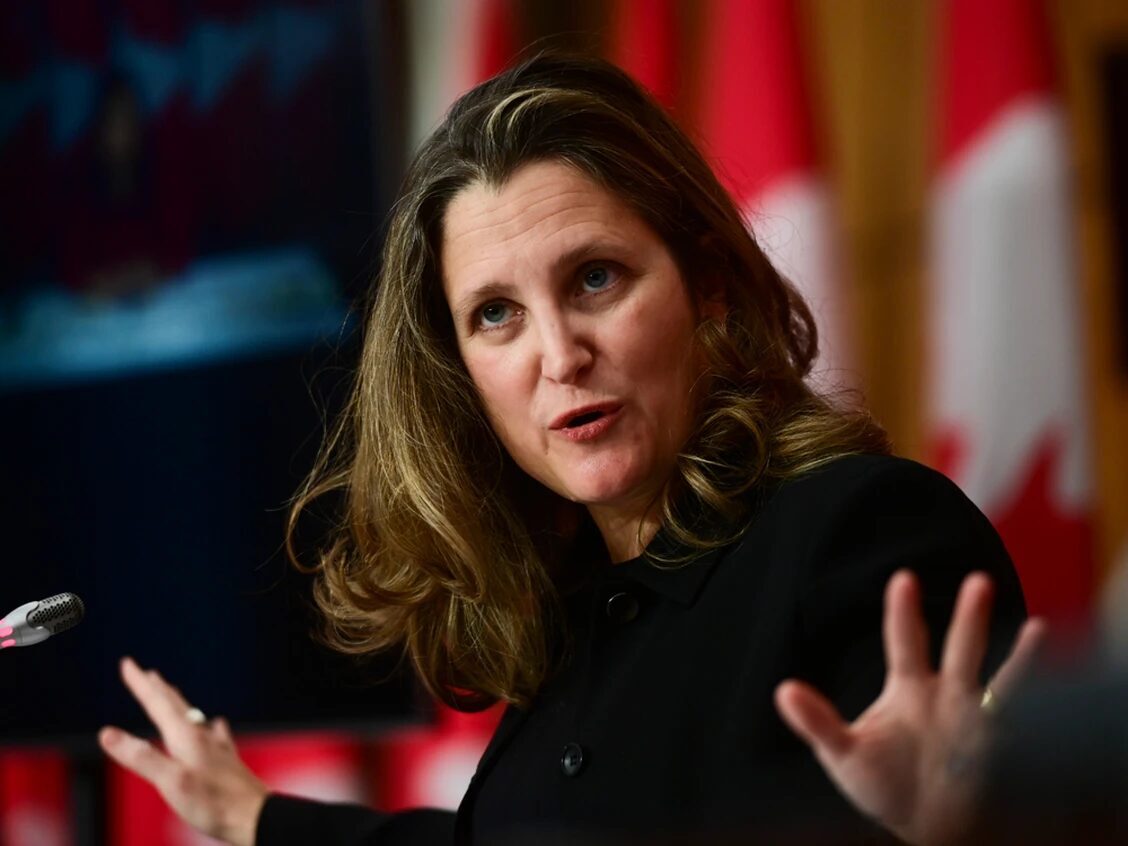
Chrystia Freeland's 'epiphany' that COVID-19 is an 'opportunity' — that's pretty dark
I really believe COVID-19 has created a window of political opportunity and maybe an epiphany ... on the importance of early learning and childcare. — Chrystia Freeland, Finance Minister. Beware of politicians having epiphanies. It's quite enough...
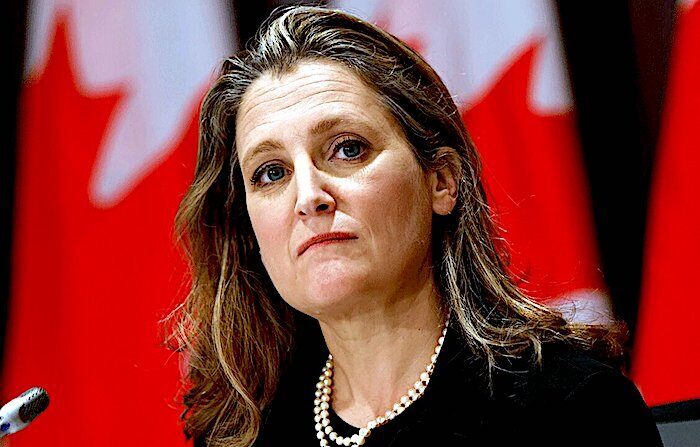
Chrystia Freeland's side gig with the WEF is endangering Canadian democracy
There's no need to invent conspiracy theories. The attempt by global elites to subvert local democracy is fully on and in plain view. The World Economic Forum (WEF), which has met at the Swiss ski resort of Davos every year since its creation in...
There's some good news in Canada - Alberta has an incredible new policy in combatting drug addiction, which includes not giving people more drugs, and taking steps to help them recover. Genius! And other provinces are paying attention.
It's also so good to see addicts being treated with compassion, as human beings with capacity to recover. That's one thing that looks to be often missing from certain conservative narratives - compassion and forgiveness. It's one negative effect of the focus on personal responsibility that conservatives lean towards IMO... seeing any form of social safety net as communism or indulging the weak or whatever.
Anyways, the fatality reduction from this approach is absolutely huge.
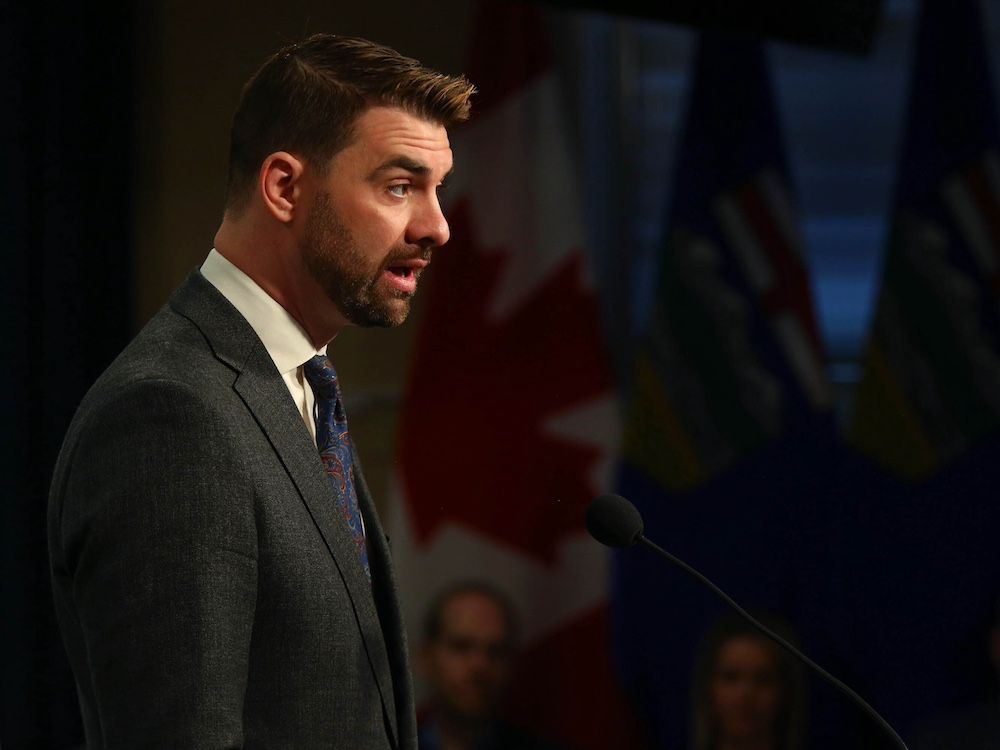
 nationalpost.com
nationalpost.com
It's also so good to see addicts being treated with compassion, as human beings with capacity to recover. That's one thing that looks to be often missing from certain conservative narratives - compassion and forgiveness. It's one negative effect of the focus on personal responsibility that conservatives lean towards IMO... seeing any form of social safety net as communism or indulging the weak or whatever.
Anyways, the fatality reduction from this approach is absolutely huge.

Rahim Mohamed: Alberta model is the playbook for how to fight the national opioid crisis
Historically insular province finds itself leading the recovery agenda
CALGARY — Alberta, a province that’s most often in the headlines for setting firewalls around its own jurisdiction, finds itself an unlikely leader in setting the national agenda on addictions and recovery policy.
Any lingering doubts surrounding the momentum behind the fledgling Alberta model of recovery-oriented addictions care were put to rest this week as over 1,900 Canadians congregated in Calgary for the eighth annual Recovery Capital Conference. Among those in attendance were elected officials from across Canada, including the respective ministers in charge of addictions services in Ontario and Saskatchewan.
“We’re aligned with what’s happening in Alberta,” Michael Tibollo, Ontario’s Associate Minister of Mental Health and Addictions, told me on Wednesday. “The focus in Ontario is on recovery… and meeting people where they’re at with the supports they need.”
Saskatchewan Minister of Mental Health and Addictions Tim McLeod added, “Alberta has been a great neighbour and partner” on the addictions file. McLeod reiterated that Saskatchewan is in the process of transitioning toward a “recovery-oriented system of care”, as outlined last fall in the province’s new Action Plan for Mental Health and Addictions.
“The work being done by Alberta and Ontario certainly aligns with Saskatchewan and the approach that we’re taking there.”
The vote of confidence comes at a time when critics of the Alberta model, which explicitly rejects safe supply, are casting doubts on its efficacy in curbing drug-related deaths linked to powerful street opioids like fentanyl and carfentanil. Illicit drugs claimed the lives of at least 1,706 Albertans last year, the highest number on record, with an average of four people each day killed by opioids.
Alberta addictions minister Dan Williams acknowledged, on Wednesday, that the province needs to do more to combat toxic street drugs but emphasized the “great improvements” that have been made in reducing fatalities related to other substances, including prescribed opioids. According to the province’s substance use surveillance system, deaths linked to commonly prescribed pharmaceutical opioids like codeine and methadone have dropped by 70 per cent since 2018. There have also been significant decreases in deaths related to alcohol, cocaine, methamphetamines and benzodiazepines.
Williams also told me he expects the forthcoming Compassionate Intervention Act to lead to a reduced death toll among transient and unhoused drug users.
“If somebody is a danger to themselves or others because of their drug use, we as a society need to find appropriate ways to intervene,” Williams told me. Adding, “It is un-Canadian to leave (drug-addicted) individuals to live intermittently homeless in minus-40 weather in northern Alberta.” While he was unable to give me a precise timeline for the introduction of the act, he insisted it remains a top legislative priority.
For his part, Williams is embracing Alberta’s role as a national trendsetter. When asked why the province is calling a new provincial crown corporation dedicated to addictions and recovery research the Canadian Centre of Recovery Excellence, or CoRE, Williams had the following to say:
“We have a proudly Canadian national view of how we can positively influence the addiction and mental health recovery space and the name of our new crown corp reflects that.” Williams said that he hopes CoRE will be an incubator of interprovincial research partnerships.
Williams and his Ontario and Saskatchewan counterparts all said that the federal government needs to do more to improve the substandard living conditions that have allowed addictions to flourish in Indigenous communities across Canada.
“When we’re addressing treatment and recovery, we have to also look upstream in terms of what’s causing some of the issues we’re seeing in First Nations,” Tibollo told me. “When they don’t have adequate water supply and housing… it begs the question why aren’t they (the federal government) doing more?”
The ministers nevertheless expressed optimism in the level of engagement in the recovery movement they’re seeing from Indigenous communities. According to Williams, Roughly half of the Recovery Capital Conference’s attendees, for example, represented First Nations, Métis and Inuit communities.
So while Alberta still carries something of an independent streak, the steady diffusion of its recovery-oriented model to other provinces is showing, in real time, just how much it can accomplish when it embraces a position of national leadership.
There's some good news in Canada - Alberta has an incredible new policy in combatting drug addiction, which includes not giving people more drugs, and taking steps to help them recover. Genius! And other provinces are paying attention.
Apparently, not their neighbor to the West (BC) - I mean, this should make health care workers and doctors really want to go to work, right? Unbelievable.
Good on Smith:
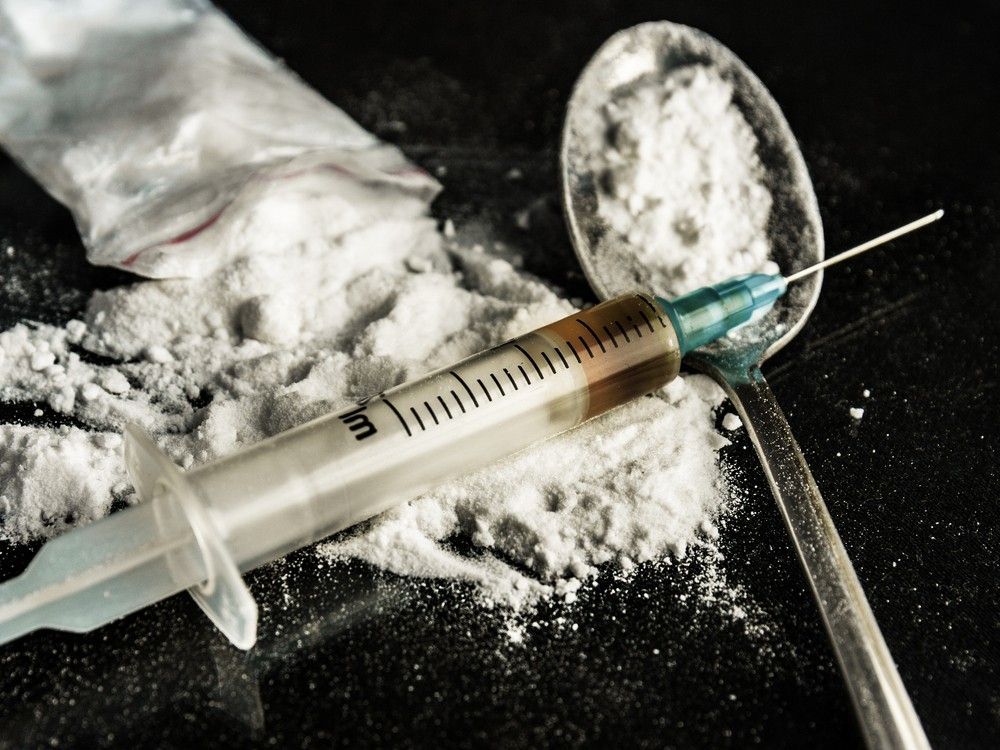
'Who are you to stop someone blowing crack smoke at a newborn?' Inside the thoughts of B.C.'s harm reduction program
"By making shelters a place drug use, drug micro-economies and weapon micro-economies co-exist, we are forging a holistic continuum of support"
Snip:
This week, a leaked memo in B.C. revealed that hospital workers were being told not to confiscate weapons or illicit drugs from patients – and to look the other way at in-hospital drug dealers. It caused a stir in the B.C. Legislature, but it’s not altogether surprising for a province that has already decriminalized hard drugs, pioneered the government distribution of recreational opioids to addicts and opened one of the world’s most comprehensive networks of low-barrier shelters and safe consumption sites. All of this has been done in the name of “harm reduction”; the notion that any attempt to discourage drug use will only force the activity into the shadows and increase overdose deaths.
[...]
Studies show that the mere act of telling a hospital patient not to blow crack smoke in a newborn’s face can trigger a potentially deadly stigma spiral. By merely suggesting that crack cocaine (or bladed weapons, or drug transactions) are not welcome in a health-care setting, we are othering society’s most vulnerable and thrusting them into lone-use situations.

Apparently, not their neighbor to the West (BC) - I mean, this should make health care workers and doctors really want to go to work, right? Unbelievable.
Good on Smith:

'Who are you to stop someone blowing crack smoke at a newborn?' Inside the thoughts of B.C.'s harm reduction program
"By making shelters a place drug use, drug micro-economies and weapon micro-economies co-exist, we are forging a holistic continuum of support"nationalpost.com
Snip:

Yikes. Harm reduction at its finest? I had a friend who tried a stint as a hospital security guard here in BC. He said the stories were insane - the hospital could barely keep enough security guards to ensure everyone's safety, as the guards often quit due to the stress of dealing with very challenging and sometimes violent situations. This snip helps all that make more sense.
There is talk of Mark Carney possibly becoming the new PM of Canada. That would be terrible. This guy:
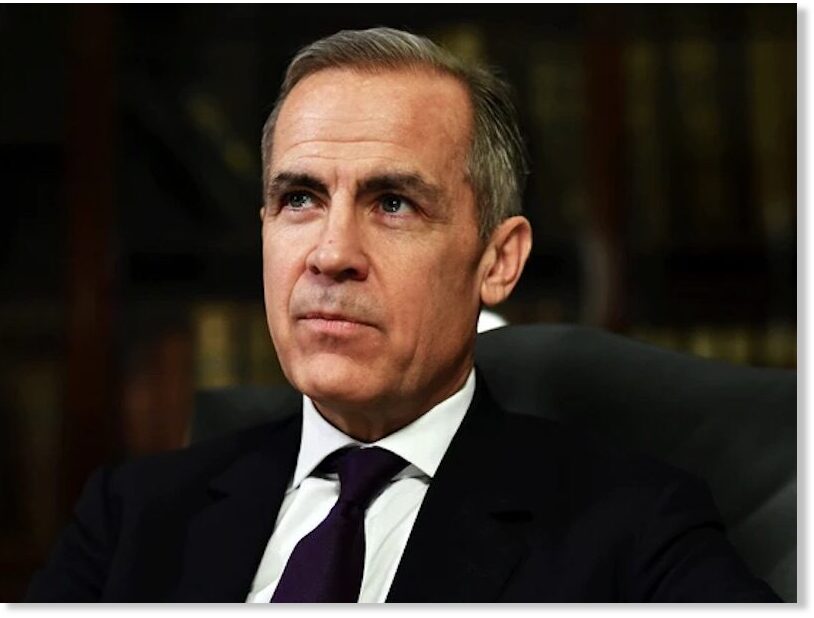
 www.sott.net
www.sott.net

"It won't be pleasant" - Mark Carney unveils dystopian new world to combat climate 'crisis'
What Carney ultimately wants is a technocratic dictatorship justified by climate alarmism In his book Value(s): Building a Better World for All, Mark Carney, former governor both of the Bank of Canada and the Bank of England, claims that western...
BHelmet
The Living Force
Meet the new boss, same as the old boss…. No wait; potentially worse than the old boss. Is that even possible?There is talk of Mark Carney possibly becoming the new PM of Canada. That would be terrible. This guy:
An astrological reading of Trudeau and Canada.
She says leadership looks unstable for Trudeau with Rahu transiting through his 8th house - maybe something uncovered about his doings. She says there is some great deception - something he's keeping secret, or perhaps something he doesn't see going on in Canada.
The main point is that there may be trouble in Canada in October 2024 when Mars goes through Gemini. In Feb 2025, Mars stations direct in Gemini, which means volatility. There's also possibility of some kind of attack.
Anyways, another bit of data to chew on.
She says leadership looks unstable for Trudeau with Rahu transiting through his 8th house - maybe something uncovered about his doings. She says there is some great deception - something he's keeping secret, or perhaps something he doesn't see going on in Canada.
The main point is that there may be trouble in Canada in October 2024 when Mars goes through Gemini. In Feb 2025, Mars stations direct in Gemini, which means volatility. There's also possibility of some kind of attack.
Anyways, another bit of data to chew on.
unkl brws
Dagobah Resident
I saw this article online today from Farmers Forum about the carbon tax protests across Canada this month:There is a facebook group I have recently found called the "Nationwide Protest Against the Carbon Tax" that has just over 100, 000 people in a matterof a couple weeks because Carbon Tax is going up again April 1st. Some people are saying fuel up March 31 then boycott buying fuel for the following week while others are setting up protests in multiple provinces and in some case multiple cities within a province. I'm curious if anyone else has heard about this movement and has any thoughts on it? It could be ways to make it more impactful or things to watch out/possible dangerous
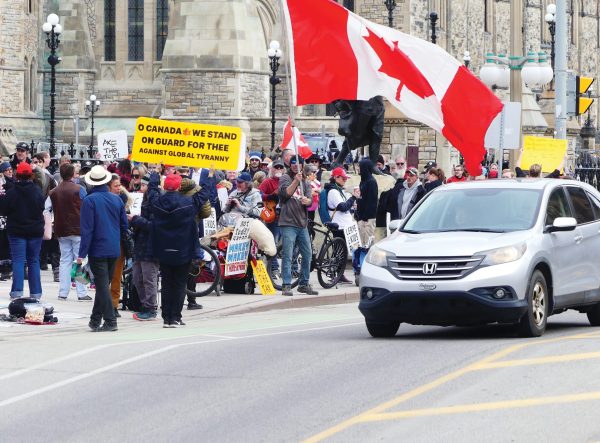
CANADA-WIDE PROTESTS: Carbon tax protests peppered across the country
CANADA-WIDE PROTESTS: Grassroots carbon tax protests peppered across the country Patrick Meagher Farmers Forum OTTAWA — April 1 was marked by the annual carbo
Protest website: Nationwide Protest Against the Carbon Tax
Coming in May in Québec, the Archiple Pass:
From : Archipel Pass - Responsible and sustainable travel - Unique Features of the Region - Discover the islands - Magdalen Islands for vacation and tourism in the Gulf of the St-Lawrence in Quebec, Canada
We can read:
But as said in that article from fr.sott.net Québec — Accès payant aux Îles-de-la-Madeleine ou comment implanter un contrôle de la population
It is only the first step.
From : Archipel Pass - Responsible and sustainable travel - Unique Features of the Region - Discover the islands - Magdalen Islands for vacation and tourism in the Gulf of the St-Lawrence in Quebec, Canada
We can read:
The Archipel Pass is an initiative implemented by the Municipality of Les Îles-de-la-Madeleine. By acquiring the Archipel Pass, all visitors to the Îles de la Madeleine contribute to the establishment of the Sustainable Land Management Fund. This fund will finance the establishment and management of a regional park, waste management, as well as the improvement and maintenance of recreational and tourist infrastructures.
But as said in that article from fr.sott.net Québec — Accès payant aux Îles-de-la-Madeleine ou comment implanter un contrôle de la population
It is only the first step.
Naturally, the municipality's mayor justifies the introduction of this pass to help the municipality pay for the effects of tourism. But in reality, there's much more to it than that. This will be the first time in Canada that citizens will have to pay an additional fee to go to another municipality, and it will also be the first time that citizens of one municipality will have to show proof that they actually live in that city when they want to leave the city to go to the neighboring municipality without having to pay.
We're not yet talking about "15-minute" cities, but we can clearly see the Canadian and Quebec governments' orientation towards "total control of its population". The municipality's mayor tells us that it's only from May 1 to October 14 and that it's an experimental project, but does this remind us of something along the lines of "it's only for 15 days, until the curve flattens out"?
According to André Lafrance, there are already plans to set up something similar for "Toronto and another island at the other end of Canada".
And as Me Lafrance puts it:
"I want people to remember one thing from our interview tonight, and that is that the Pass des Îles is a social control and that the royalty is just a smokescreen."
Some farmer in Canada had enough of the Trudeau government or is it a new theme in this crop circle season.
Trending content
-
Thread 'Coronavirus Pandemic: Apocalypse Now! Or exaggerated scare story?'
- wanderingthomas
Replies: 30K -
-
-

